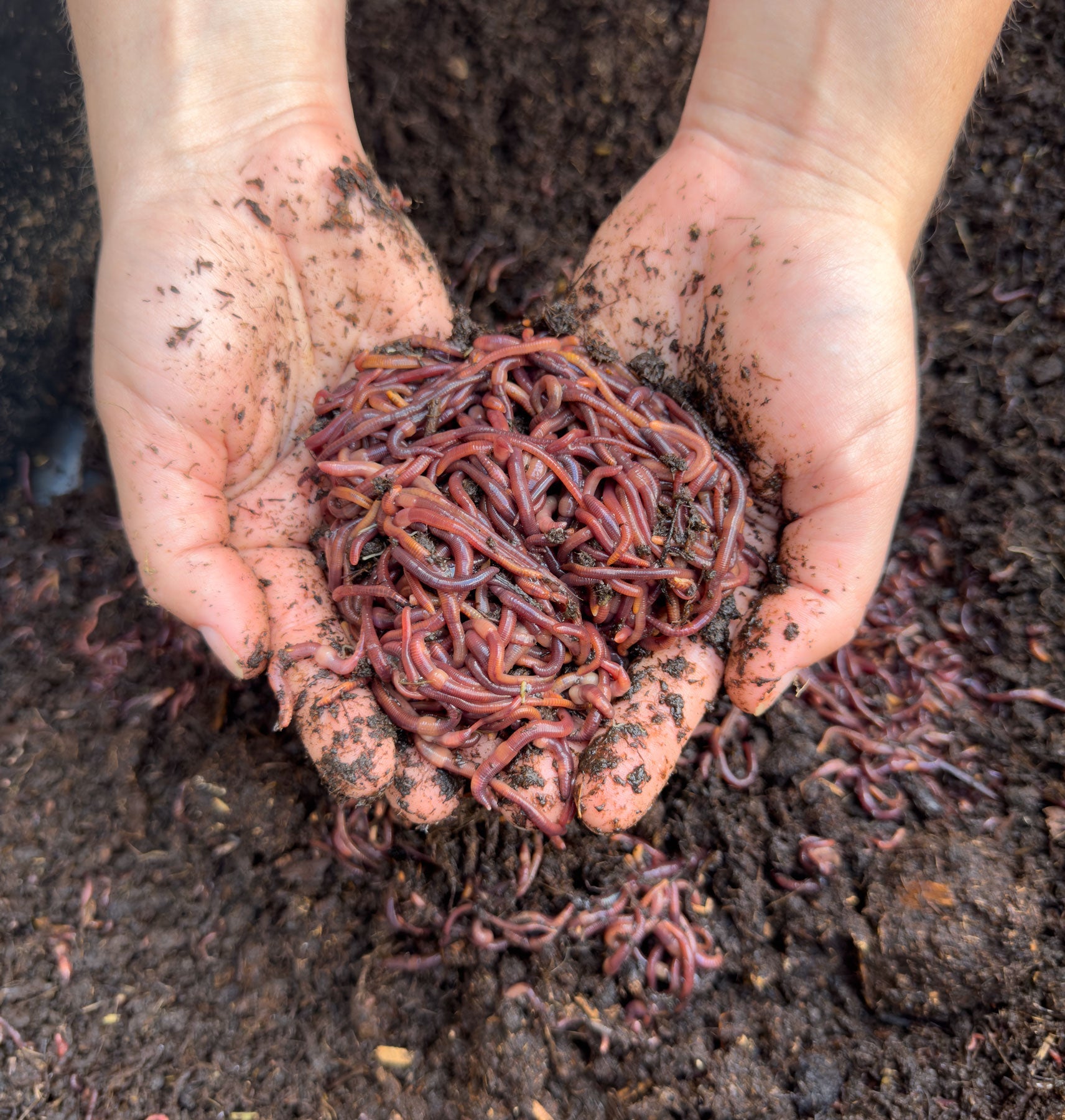Discover Lake Hickory Bait: Reliable Supplies for Every Fishing Trip
Discover Lake Hickory Bait: Reliable Supplies for Every Fishing Trip
Blog Article
The Unbelievable Globe of Red Wigglers: Increase Your Dirt Fertility Today
These tiny yet efficient organisms transform organic waste into beneficial worm castings, significantly improving soil health and wellness and promoting sustainable techniques. As we check out the benefits of vermicomposting and the sensible steps to create an effective worm container, the prospective influence of these worms on your horticulture success becomes progressively obvious.
Understanding Red Wigglers
Red wigglers, medically understood as Eisenia fetida, are a varieties of earthworm that play a critical duty in boosting soil fertility. These worms flourish in organic-rich environments, such as compost heap and rotting plant material, where they take in natural waste and secrete nutrient-dense castings. Their unique anatomy, featuring a fractional body and a clitellum, permits them to recreate quickly and effectively process large quantities of natural issue.

The ecological value of red wigglers extends beyond mere waste processing; they add to the soil food web, fostering a diverse community of microorganisms that better boost dirt health and wellness. Comprehending the biology and actions of red wigglers is important for utilizing their complete capacity in lasting farming and gardening techniques.
Advantages of Vermicomposting
(Lake Hickory Bait)Taking advantage of the power of red wigglers through vermicomposting deals countless benefits that considerably boost soil health and fertility. Among the primary advantages is the production of nutrient-rich worm spreadings, which are an outstanding all-natural fertilizer. Red Wiggler Express. These spreadings contain vital nutrients like nitrogen, phosphorus, and potassium, advertising robust plant growth and improving plant returns
Furthermore, vermicomposting improves dirt framework and aeration. The visibility of worm spreadings boosts dirt appearance, allowing for much better water retention and drainage. This well balanced wetness degree is critical for origin development and the overall wellness of plants. Additionally, red wigglers aid break down raw material, speeding up decay and recycling nutrients back into the soil.
Vermicomposting likewise promotes microbial activity, which is vital for a healthy and balanced dirt ecological community. Beneficial microbes grow in the presence of worm spreadings, helping in the breakdown of natural materials and boosting vitamins and mineral schedule to plants.
Finally, vermicomposting functions as an effective waste administration solution, lowering garbage dump waste by recycling kitchen scraps and various other organic products. This not just adds to ecological sustainability but additionally promotes a round economic climate within horticulture and farming.
How to Establish a Worm Bin
Establishing up click to read a worm container is an uncomplicated procedure that can considerably improve your composting initiatives. Begin by choosing a proper container, which can vary from a commercially readily available worm bin to an easy plastic or wood box (Red Wiggler Express). Make certain the container has sufficient air flow; tiny openings in the cover and sides will promote air flow
Next, create a bed linen layer to offer a comfy environment for the red wigglers. This can be made from shredded newspaper, cardboard, or coconut coir, moistened to a wet, sponge-like uniformity. Fill up the bin to around one-third full with this bedding material.
When the bed linens is prepared, it's time to present the worms. Red wigglers prosper in organic waste, so location them gently onto the bed linens. Cover the worms with a light layer of added bed linen to help them adapt.
Feeding Your Red Wigglers
Supplying the appropriate food for your red wigglers is important for their wellness and the efficiency of your composting system. Red wigglers prosper on a varied diet, primarily including organic materials such as vegetables and fruit scraps, coffee premises, and shredded paper. These products not just provide necessary nutrients however additionally contribute to the microbial task in the worm container, which is important for the worms' digestion.
It is necessary to stay clear of specific foods, such as dairy items, oils, and meats, as these can draw in bugs and create unpleasant smells. Additionally, citrus peels and excessively hot foods ought to be restricted as a result of their possible to damage the worms. A balanced method to feeding involves monitoring the amount of food introduced to the container, making sure that it is taken in within a practical period to avoid excess waste buildup.
To advertise optimum food digestion, it is beneficial to chop or shred bigger food items prior to adding them to the bin. This method raises the area for microbial action, assisting in quicker decomposition and improving the total effectiveness of your composting system. On a regular basis observing the worms' feeding habits will help you readjust their diet as required.
Making Use Of Worm Castings in Your Yard

(Red Wiggler Express)Integrating worm spreadings right into your garden can be accomplished by blending them into the soil or utilizing them as a leading dressing. The slow-release nature of these spreadings guarantees that nutrients are offered to plants over an extensive duration, reducing the need for synthetic plant foods. In addition, worm spreadings include helpful microbes that promote healthy dirt ecological communities, improving the total durability of your garden.
To make the most of the advantages, purpose to use approximately one component worm spreadings to three parts soil in your growing beds. Regular applications can bring about improved plant yields and healthier plants, making worm spreadings an important source for both beginner and knowledgeable gardeners alike. By using this natural change, you can grow a flourishing garden while adding to lasting gardening methods.
Final Thought
In final thought, red wigglers exemplify the crucial duty of vermicomposting in boosting soil fertility. Their ability to transform natural waste into nutrient-rich castings dramatically improves soil framework and supports microbial diversity.
Report this page